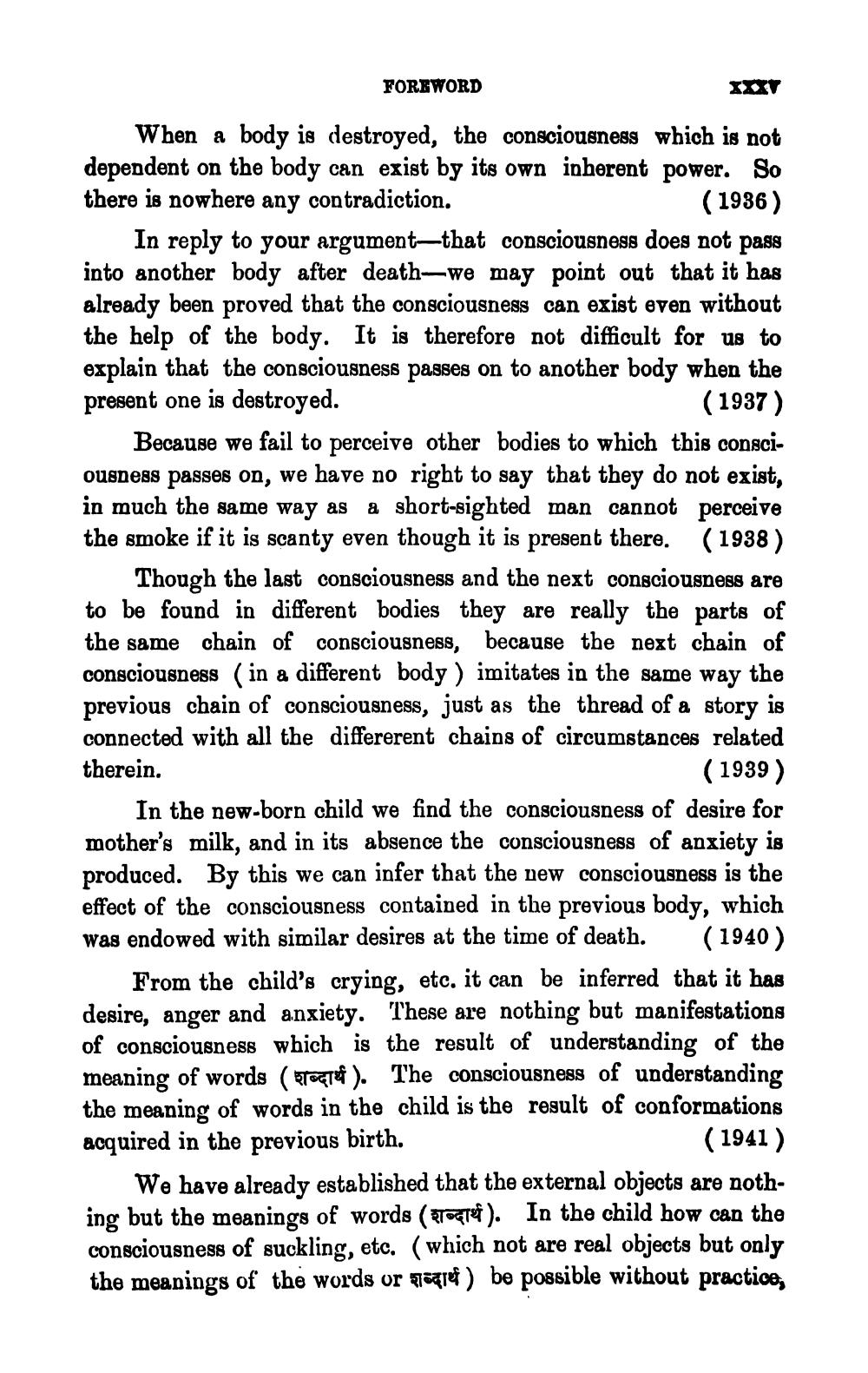________________
FOREWORD
XXXV
When a body is destroyed, the consciousness which is not dependent on the body can exist by its own inherent power. So there is nowhere any contradiction.
(1936)
In reply to your argument-that consciousness does not pass into another body after death-we may point out that it has already been proved that the consciousness can exist even without the help of the body. It is therefore not difficult for us to explain that the consciousness passes on to another body when the present one is destroyed. (1937)
Because we fail to perceive other bodies to which this consciousness passes on, we have no right to say that they do not exist, in much the same way as a short-sighted man cannot perceive the smoke if it is scanty even though it is present there. (1938)
Though the last consciousness and the next consciousness are to be found in different bodies they are really the parts of the same chain of consciousness, because the next chain of consciousness (in a different body) imitates in the same way the previous chain of consciousness, just as the thread of a story is connected with all the differerent chains of circumstances related therein. (1939)
In the new-born child we find the consciousness of desire for mother's milk, and in its absence the consciousness of anxiety is produced. By this we can infer that the new consciousness is the effect of the consciousness contained in the previous body, which was endowed with similar desires at the time of death. (1940)
From the child's crying, etc. it can be inferred that it has desire, anger and anxiety. These are nothing but manifestations of consciousness which is the result of understanding of the meaning of words (f). The consciousness of understanding the meaning of words in the child is the result of conformations acquired in the previous birth. (1941)
We have already established that the external objects are nothing but the meanings of words (). In the child how can the consciousness of suckling, etc. (which not are real objects but only the meanings of the words or
) be possible without practice,




